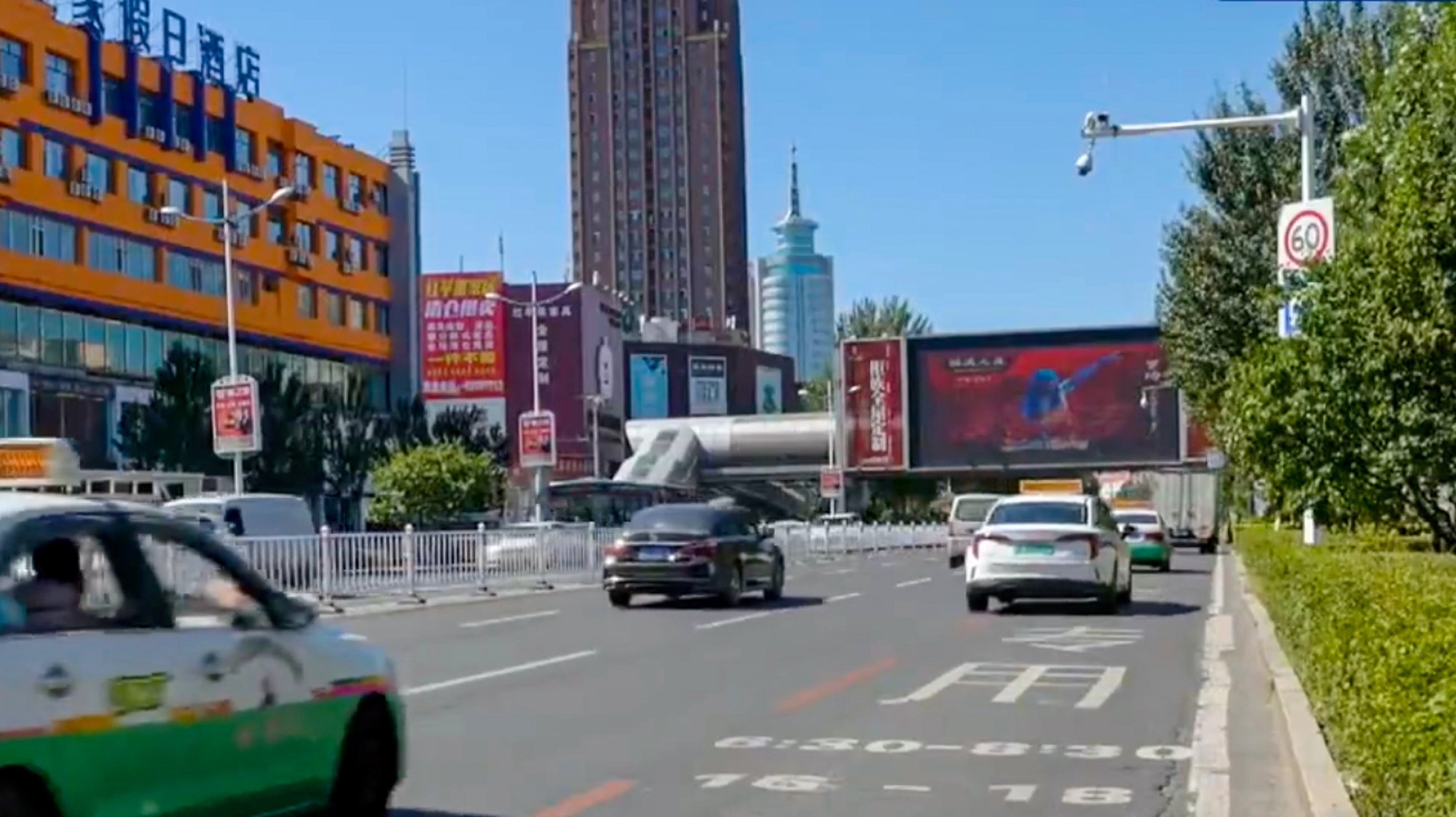
In China’s Jilin City, a giant billboard stands as a monument to how corrupt officials fall
- CCTV series highlights how advertising screen owned by son became source of illicit income for ex-Communist Party boss of Jilin City
- Zhang Xiaopei, who was expelled from the party in June, is alleged to have accepted ‘tens of millions of yuan’ in bribes
A giant billboard in downtown Jilin City attracted attention not just because of its prominent position in the northeastern Chinese urban centre.
The billboard on an overpass in the commercial heart of Jilin City, in the northeastern province of the same name, was owned by the son of local party secretary Zhang Xiaopei, who rose to become vice-chairman of the Jilin provincial political advisory body before retiring in 2018.

Once business owners learned of the Zhang connection, they “took the initiative to spend huge sums of money [on renting the billboard], even though there was no demand for advertising”, the CCTV programme showed an official from the party’s top anti-corruption body as saying.
“[The businesspeople] were actually covering up [means] to funnel benefits to Zhang in this way,” the Central Commission for Discipline Inspection official said.
“His son’s billboard was an ‘overpass’ to Zhang’s power,” the documentary said, and Zhang “allowed his family to gain wealth” on the back of his power and influence.
Zhang, 66, is among four Jilin City party secretaries in a row to face corruption allegations. The four were in office between 2006 and 2017.
A CCDI notice in June said he had been “disloyal to the party” and involved in the buying and selling of official positions.
Revealing fresh details of the case, the CCTV programme said Zhang had accepted “tens of millions of yuan” in property and cash from businessman Liu Youcai.
The pair, who met as lower-ranked workers in a machinery factory affiliated to Jilin Chemical Group in the 1980s, had been friends for 40 years. Over that time, their relationship turned from one based on “brotherhood” to one revolving around “naked power and money deals”, a voice-over said.
Zhang rose to become manager of the chemical group, while Liu, formerly a chef at the factory canteen, prospered as his friend directed company banquets to be held there. The canteen flourished, enabling Liu to set up restaurants elsewhere in the city.
After Zhang took over as party leader of Jilin City, Liu reportedly asked that he help him secure new projects, with his business soon expanding to catering, logistics and transport, fire equipment supply and other fields.
Liu is alleged to have repaid the favour in kind, from cash to gold bars and equity.
‘Tiger hunt’: China’s war on corruption sees record purge of senior officials
The CCTV programme also outlined corruption cases against three successive public security chiefs from neighbouring northeastern Liaoning province.
Li Wenxi, who was in office between 2002 and 2011, embezzled 541 million yuan (US$75.5 million), while Wang Dawei took 555 million yuan during his 2011-2013 term. Wang’s successor, Xue Heng, took 135 million yuan while in office between 2013 and 2022, according to the report.
The commission will meet from Monday to set priorities for the country’s legions of discipline inspectors and supervisors in the new year.

